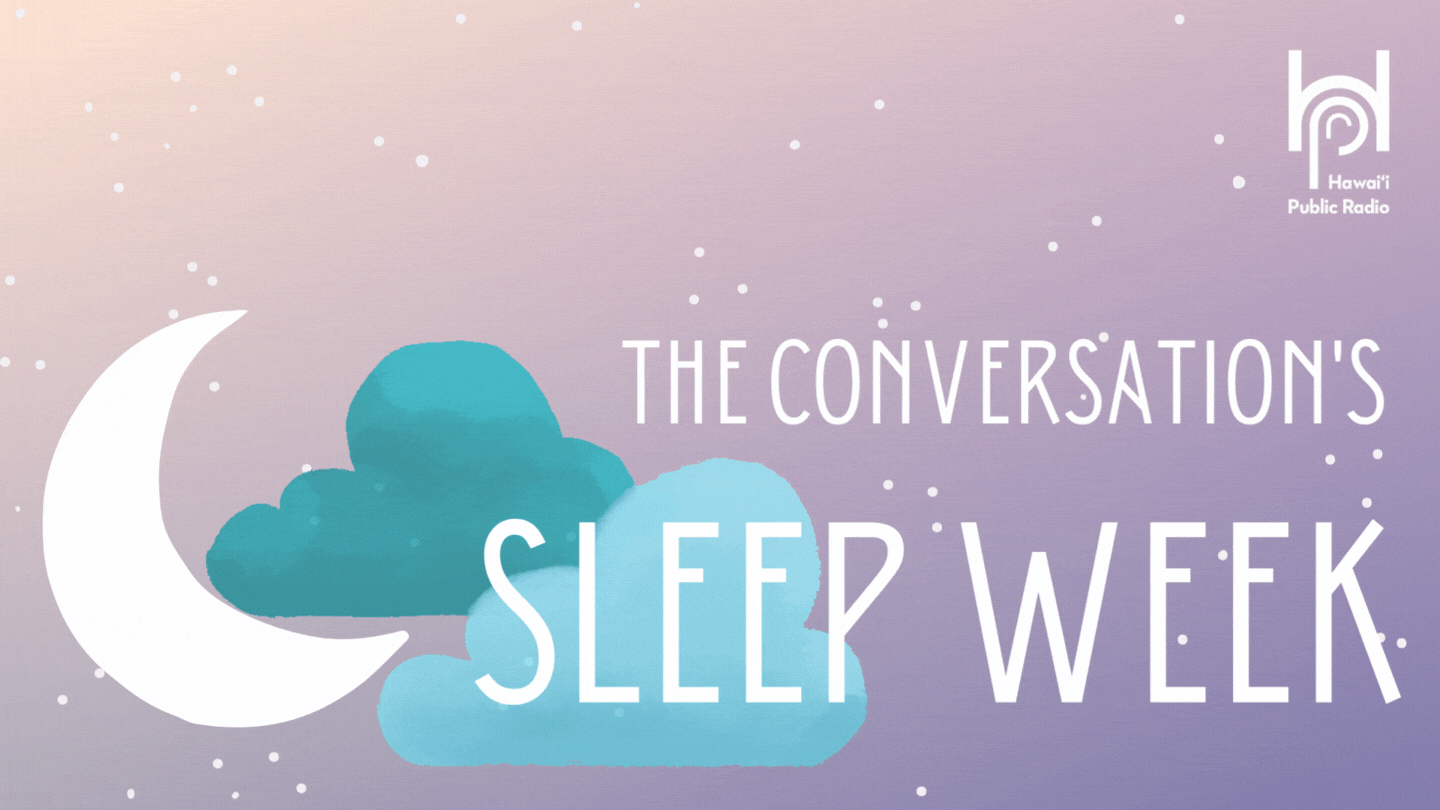Schools are taking a closer look at student sleep — or the lack thereof. In California, public high schools don’t start until 8:30 a.m. At Baylor University in Texas, students can earn extra credit for sleeping eight hours a night during finals week. And at Harvard University, new students complete a sleep education program before arriving on campus.
But that hasn’t happened yet here in Hawaiʻi. As classes start at the University of Hawaiʻi at Mānoa, students on Oʻahu are gearing up for another busy — and sleepless — year.
Rudy Ramirez, a fourth-year student studying food science and human nutrition, spends 50 hours per week in class and doing homework. Then he moves on to his other obligations as student body president, a volunteer for the Expanded Food and Nutrition Education Program, and a member of his neighborhood delegation.
He tries his best to get six hours of sleep per night, but that’s not always possible.

“There have been times when I had an assignment that [wasn’t done until] maybe three in the morning. And I have to be up maybe by eight,” Ramirez said.
“I don't even feel present. I can't remember what happens throughout that day,” he continued. “I just feel like I'm chugging along.”
Ramirez is not the only one. According to data from the U.S. Centers for Disease Control and Prevention, Hawaiʻi is the most sleep-deprived state in the country.
College students are balancing a lot: classes, homework, sports, clubs. But for the many UH Mānoa students paying their way through school, balancing education and employment can be a heavy load.
Ramirez is relying on federal aid, scholarships, and savings to get his degree. “People need to prioritize what’s needed to survive,” he said.
Between school and work, there isn’t much time to rest. Ramirez told The Conversation that sleep tends to be a low priority. Students attend class before going to work, then stay up even later to finish assignments.
Dr. Laura Lyons, interim vice provost of academic excellence at UH Mānoa, notices when students are nodding off during class.
“They might have said that they were up really late working on finishing a project, or that they were working a job that went to quite late hours in order to pay for college,” Lyons recalled. “And so, you know, they were feeling sleep deprived.”
Sleep, however, is not as simple as having too much work and too little time. Factors outside of one’s control can influence sleep.
Dr. Allison Nickel, a postdoctoral research fellow at Baylor University, examined data from 1.9 million college students from 2000 to 2020. She found that underrepresented minority students reported significantly less sleep than non-URM students — and they were getting worse grades because of it.
“We speculate that the underrepresented minority groups are getting less sleep as a result of experiencing discrimination and microaggressions in their daily lives,” Nickel explained.
“They often have more negative experiences in their day-to-day lives, which can actually cause psychosocial distress, rumination… the underrepresented minority students might actually carry this with them throughout their day, throughout their lives, throughout their schooling.”
At UH Mānoa, where 80% of the student body is non-white, support for underrepresented minorities is especially important. Nickel hopes that all schools, not just UH, keep race in mind when considering student sleep and health.
More than that, Nickel believes sleep is not a matter of personal responsibility. She says that, in order to enhance sleep education, we should start with education itself.
It would not be the first health initiative to begin in the classroom. Elementary schools teach the importance of healthy eating and exercise. Many colleges have seminars on safe sex practices and forums for mental health. Nickel believes colleges should look at sleep the same way they look at drugs and alcohol.
“We know those things can cause trouble in college students,” she says. “And we make a point of acknowledging that from the get-go, but we don’t ever acknowledge sleep or lack thereof.”
In order to combat sleep deprivation, Nickel suggests pushing back class start times. The earliest classes at Baylor University start at 9 a.m. because “college students are not really mentally prepared to start learning until nine,” she said.
But different schools have different needs. A similar policy at home, where classes start as early as 7:30 a.m., would be hard, if not harmful.
“I don’t think that at Mānoa we could actually push back the start time to 9 a.m.,” Lyons said. “Baylor is a much more residential campus than Mānoa, and it serves a different population.”

Because the majority of UH students commute to school, Lyons says many opt for earlier classes to avoid long evening drives. Earlier classes also provide working students with more flexibility.
There is no one-size-fits-all solution to sleep deprivation in schools. Each school will have to adjust based on its student population.
But there are other ways to address sleep hygiene without changing class times or credit hours. Nickel suggests making it part of the curriculum, not just in colleges, but at all levels of education.
“We can implement or require some sort of sleep course, no different than taking an accounting course or a home economics course in high school, teaching you the importance of sleep, health, and sleep hygiene,” she said.
Lyons agrees that “the university has a responsibility to promote good sleep hygiene,” but that would likely be through campaigns and workshops instead of a for-credit course.
“Education is not obviously just in a classroom,” Lyons said. She suggested that counselors and departments put up posters and hold seminars.
UH Mānoa student Ramirez is open to the idea. “There could be more awareness of how much sleep is affecting your health,” he said.
For now, students are still sleep deprived. Ramirez is still tired. But as the new school year starts, we can dream.
This interview aired on The Conversation on Aug. 22, 2022. The Conversation airs weekdays at 11 a.m. on HPR-1.







